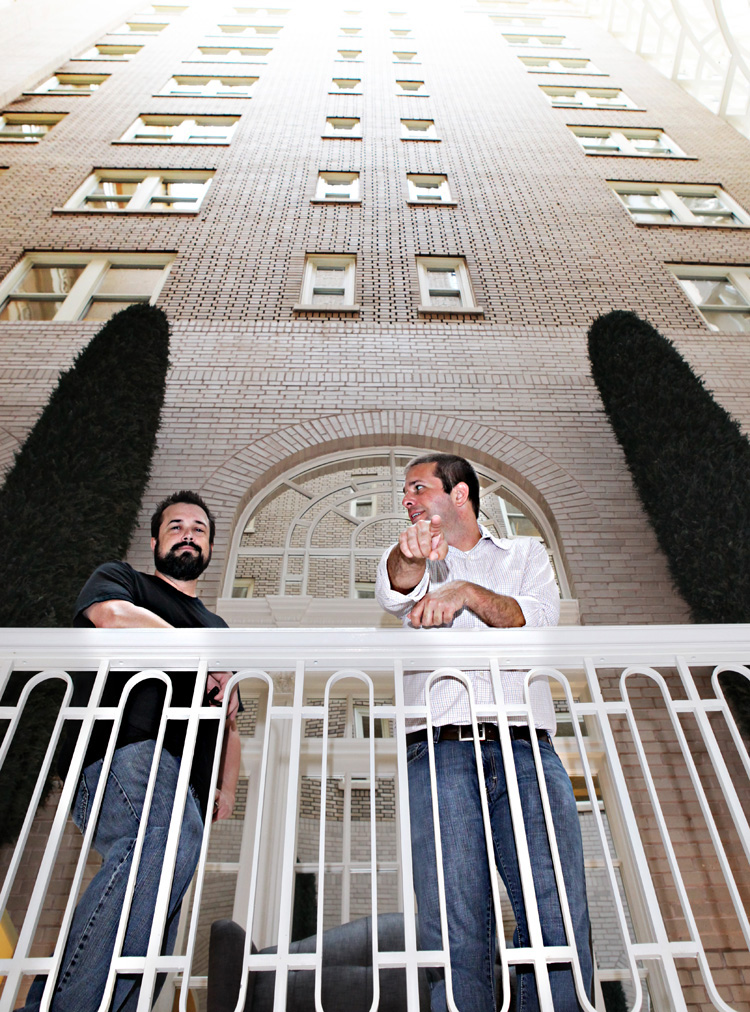The popularity the “Stuff You Should Know” podcast has garnered from the 292 episodes that have been recorded since 2008 is proof that people still want to learn about interesting topics.
“My favorite topics have been cannibalism, entomophagy (human consumption of insects), lobotomy and body farms. I tend to like the more gruesome topics,” said Chuck Bryant, one of the two hosts for “Stuff You Should Know.”
He and the other host, Josh Clark, discuss a specific topic during conversations of varying length, sharing research and drawing from personal experience to give listeners sound bites of knowledge.
“It seems like there’s a great battle going on between vapidness and intellect, which has been vilified. I think it’s making a comeback. We’re quietly doing our part to support intellect and being a smarter person,” Clark said.
For first-year political science student Joel Alcaraz, the podcast is a welcome break from learning in the traditional classroom setting.
“Josh and Chuck are funny and informative without sounding like they’re reading from a textbook. They keep you engaged because they connect their material to pop culture and current events,” Alcaraz said.
Both podcasters attended the University of Georgia before becoming senior writers at HowStuffWorks. According to Clark, his anthropology minor prepared him to be able to respectfully discuss even the most foreign topics such as voodoo and zombies.
“Cultural relativism is probably the most life-changing thing I’ve ever learned ““ how to judge another culture strictly by their morals and standards rather than your own. We do that frequently, and it causes so much strife in the world,” Clark said.
Bryant majored in English, which he said prepared him to do research for podcasts and articles, as well as motivating him to become a better writer.
What college may not have fully prepared them for was the transition into public personas. The hosts have tried to stay themselves as much as possible despite the large number of fans they have.
“That being said, it’s still pretty amazing that we’re friends with John Hodgman and when we go to the tribute night in New York, the fire department shows up because there are too many people there,” Clark said.
Alcaraz is a faithful listener, particularly because of Clark and Bryant’s everyman personas.
“Over time, you start to get to know them better because they always reveal tidbits about themselves, and it makes you attached to them,” Alcaraz said.
Clark said he believes it was his friendship with Bryant and their shared curiosity and personalities that created the podcast, rather than the other way around. Bryant’s likability and pop culture knowledge combined with Clark’s intellect to form a cohesive unit.
“Chuck is one of my two significant others. He and I have this cool relationship that’s a weird melange of really good friends, siblings, colleagues and foils,” Clark said.
Each topic also requires a large amount of research, which the hosts usually find by reading while balancing the “Stuff You Should Know” blog and keeping up with social media.
However, last February, the pair took the opportunity to travel to Guatemala for a tour with Cooperative for Education.
The nonprofit organization gives textbooks to schools in Guatemala to be rented by students for a very small fee. The money is then deposited into an account that will be used to replace old textbooks in the future, creating a self-sufficient model.
Clark and Bryant teamed up with the organization to appeal to listeners through podcast coverage of the trip. Clark was anxious about going to the country after reading the U.S. Department of State’s warning.
“It was 16 paragraphs long and really scary, so when we went, I thought there was a 30 to 40 percent chance I wasn’t coming back. I even left a note for my girlfriend, just in case,” Clark said.
The experience they actually had was the complete opposite, according to Clark. The most eye-opening aspect of the trip was the extreme poverty, such as the citizens of Guatemala living on dirt floors and without running water.
“They realize they can come out of poverty through education. They know other people don’t get up at three in the morning to work in the fields or make tortillas and then go to school. It was cool to see the people take ownership,” Clark said.
Today’s on-campus event is one of a few the podcasters speak at each year.
They have an ambitious agenda planned, including the evolution of the podcast, being members of the public media and what media means to democracy.
“Podcasts are international so we get e-mails from Beaumont, Texas, to Botswana, and it’s free. It’s on-demand, so you can take it with you wherever you go,” Bryant said.
Clark’s and Bryant’s mission for the podcast is to make their listeners the most interesting people at cocktail parties and be able to explain absolutely everything, even if the topic is borderline boring ““ such as ticks.
